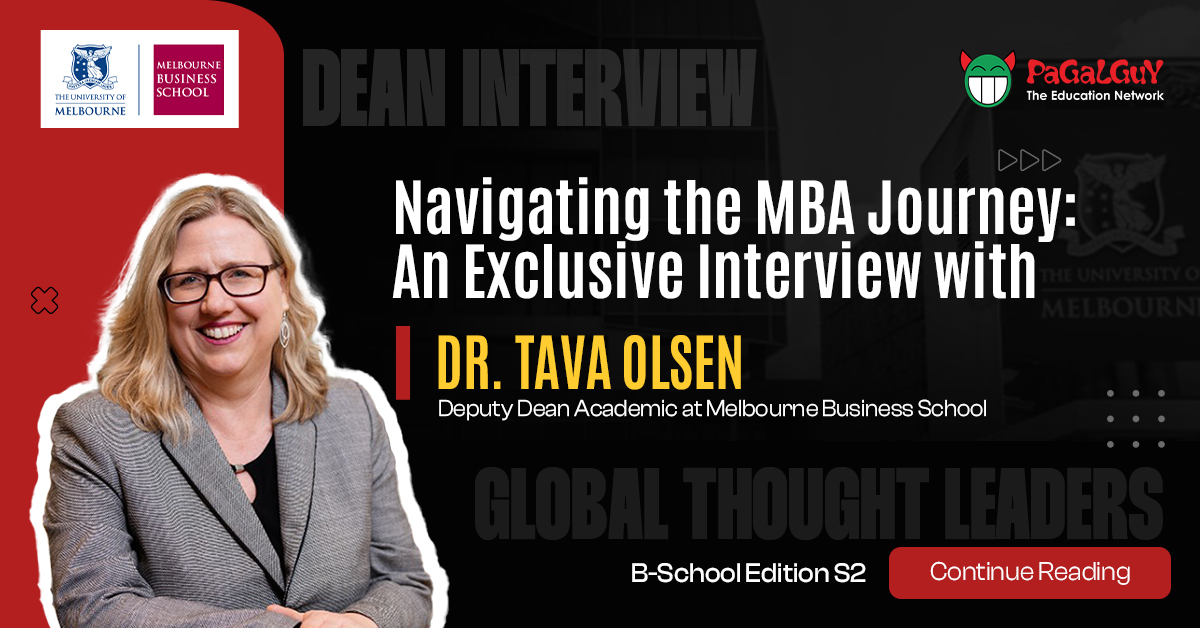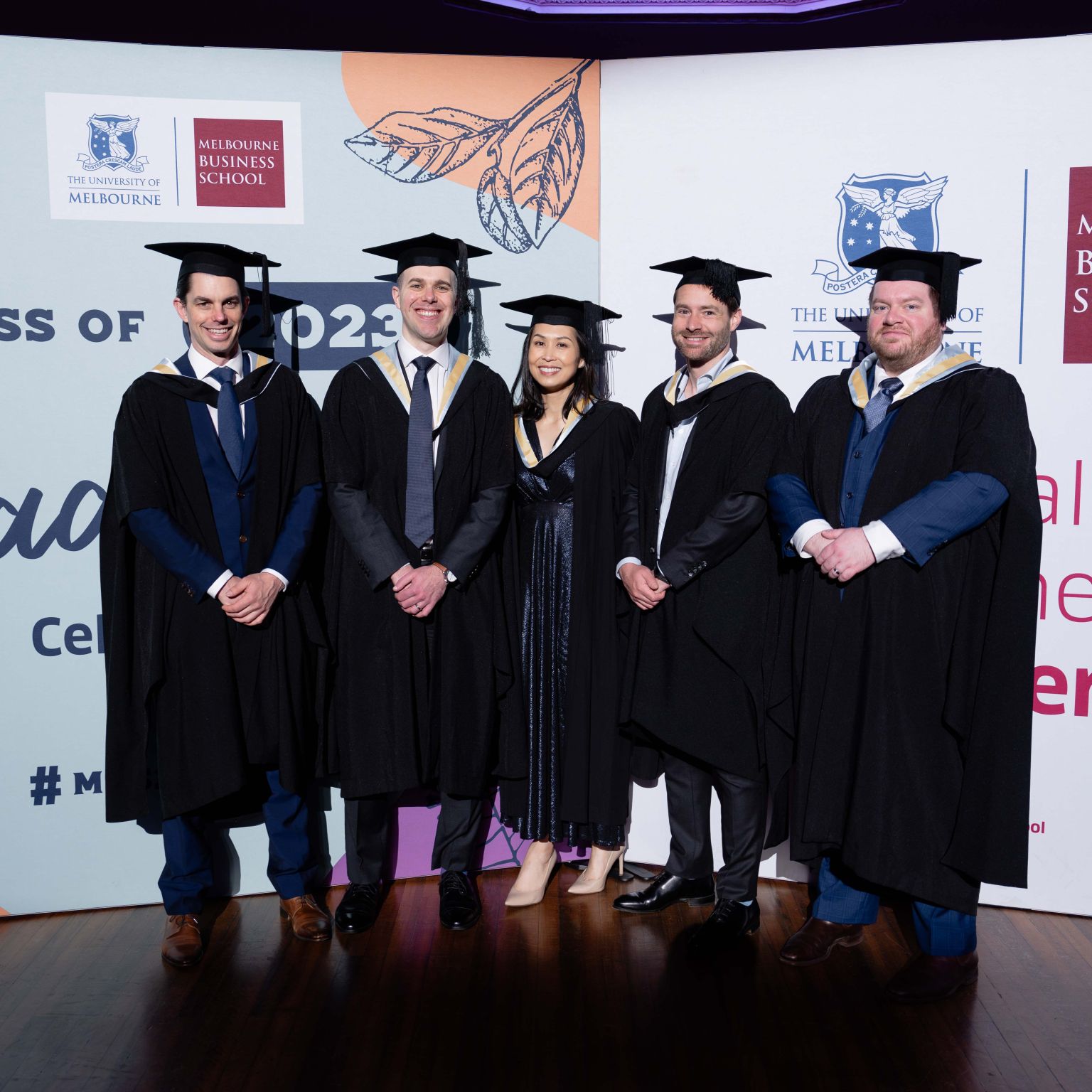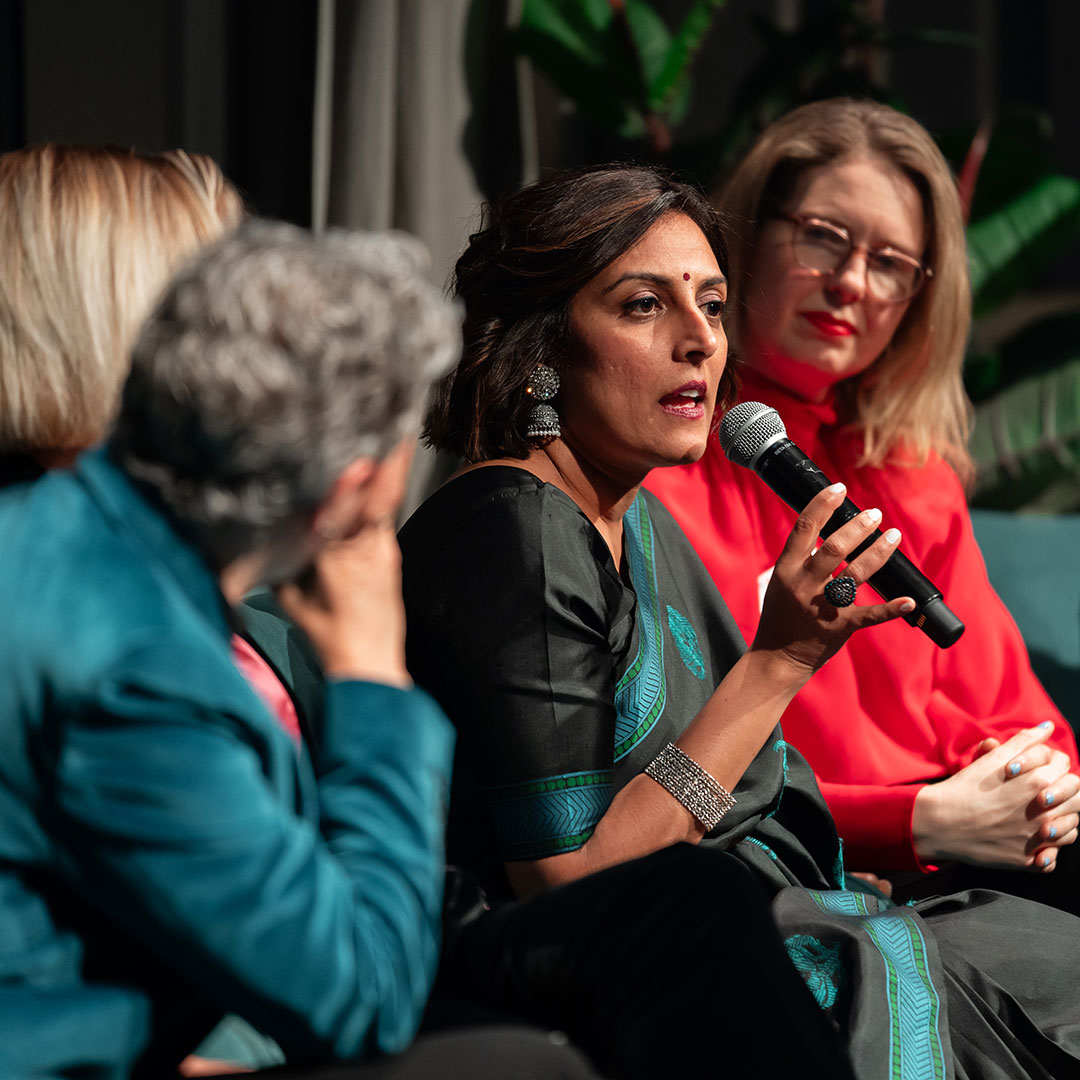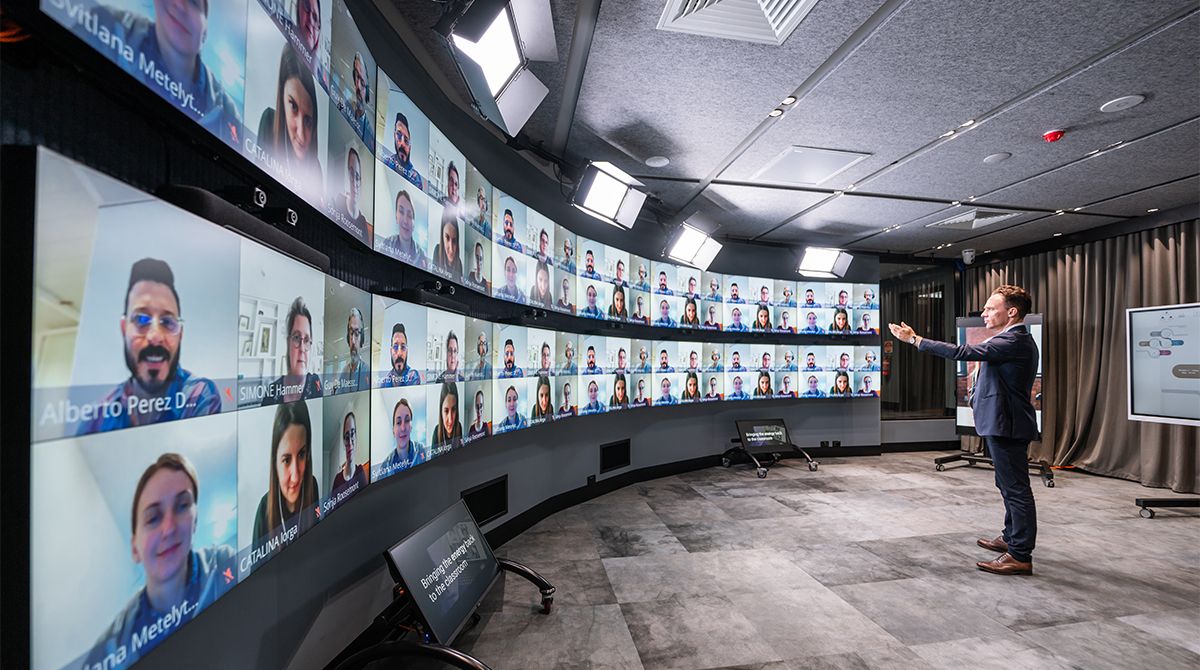
In an exclusive interview with PaGaLGuY’s Founder and CEO, Allwin Agnel, Dr. Tava Olsen, Deputy Dean Academic at Melbourne Business School, explored the changing MBA environment, underlining the importance of integrating sustainability and responsible leadership. Additionally, she provided valuable guidance to prospective MBA students, emphasising the need for a thorough application process when applying to global business schools.
Embark on a voyage through the realm of MBA education and witness its transformative influence on the next generation of business enthusiasts. This exclusive MBA interview session features the renowned Dr. Tava Olsen, a distinguished academic and expert in Operations and Supply Chain Management. Dr. Olsen currently holds the prestigious position of Deputy Dean Academic at Melbourne Business School, making her a prominent figure in the world of business education.
Dr. Olsen’s academic journey is nothing short of impressive. With a background rooted in rigorous academic pursuits, she has earned her stripes as a scholar and leader in the realm of management education. Dr. Olsen holds a Doctorate in Operations Research, a credential that underscores her expertise in the subject matter. Her research interests are both extensive and impactful, covering areas such as supply chain design, logistics, and sustainability. Her work has been published in prestigious academic journals, and she continues to be at the forefront of cutting-edge research in her field. One of her notable accomplishments lies in her dedication to fostering an enriching educational experience for students.
Dr. Olsen’s commitment to excellence in teaching has earned her recognition and accolades from students and peers alike. She plays a pivotal role in shaping the curriculum and pedagogical approaches at Melbourne Business School, ensuring that students receive a world-class education that is both relevant and transformative. Dr. Olsen’s expertise extends beyond the classroom. She has been actively engaged in consulting projects with leading industry players, applying her academic knowledge to real-world challenges in the field of Operations and Supply Chain Management. This practical experience further enhances her ability to bridge the gap between theory and practice, offering invaluable insights to aspiring business leaders. We had the privilege of delving into the insights and perspectives of Dr. Olsen as we explored the intricacies of pursuing an MBA and gained a deeper understanding of the dynamic field of Operations and Supply Chain Management. Here are those insights for your interest.
To access more such interviews, visit our YouTube Channel – Subscribe Now.
Q1: Why did you choose academia as your career path?
Ans: Originally, I pursued academia primarily for its research aspect. I dabbled in a research project during my undergraduate studies, and it became clear to me that I enjoyed research immensely. The freedom to delve into any problem of interest was a unique and appealing aspect of academia. However, as I delved deeper into academia, I discovered another passion – teaching. It was an unexpected bonus. Some of my colleagues chose academia solely for research, only to find that teaching didn’t resonate with them.
In contrast, I thoroughly relished the teaching experience—the dynamic energy of the classroom and the opportunity to interact with a diverse array of students. Later in my career, I transitioned into an academic leadership role, and I found satisfaction in that, too. This role allows me to effect positive change within academia and enhance the careers of my fellow academic professionals. Academic leadership has become another source of genuine enjoyment for me.
Q2: Can you share some insights into your academic journey and your specific interest in business education and leadership development?
Ans: I lived in the US for 20 years. Initially, I completed my PhD at Standford. My first job was at the University of Michigan, specifically in the engineering school. However, I soon realised that business aligned better with my interests in teaching and research. I then worked at Washington University in St. Louis before returning to Auckland, where I grew up. This move was driven by a combination of a job offer and family considerations. Now that my kids are grown, I’ve regained mobility. When the opportunity arose at Melbourne Business School, it was appealing due to the school’s strong reputation and the potential to make a meaningful impact.

Q3. How did you manage to excel in the rare combination of teaching, research, and administration, which seems like achieving the pinnacle of management?
Ans: Well, my own field of expertise lies in operations and supply chain. I derive great satisfaction from contemplating processes, incentives, and the ways in which we can enhance efficiency. This intellectual pursuit is especially captivating within an academic context. It’s worth noting that my fellow academics share this enthusiasm; they consistently display an openness to exploring ideas from diverse perspectives. Nevertheless, instigating change within an academic setting can be quite draining, given the customary resistance to change. It presents a challenge, but on the bright side, it brings a constant influx of novel ideas. Consequently, the task shifts to distinguishing viable ideas from those that are less likely to succeed, which can sometimes be elusive.
I have a small sculpture on my office desk that serves as a reminder of Don Quixote. If you’re not acquainted with the story, Don Quixote is renowned for tilting at windmills. In a similar vein, I often pursue objectives that appear unattainable. Yet, in many ways, it parallels the research world, doesn’t it? You establish these challenges for yourself, and sometimes you manage to effect meaningful change, while at other times, the impact might be less substantial.
Q4. Balancing student education, faculty development, and administrative tasks, how do you approach this juggling act?
Ans: So a significant aspect of my role involves establishing the right processes and incentives. Recently, I’ve overseen an adjustment to our workload model, and one of the key changes I’ve implemented is allocating more time for engagement. Within our business school context, industry connections and experiences, whether it’s consulting or executive education, are crucial for ensuring the relevance of our classroom teachings. Therefore, I’ve taken the initiative to explicitly allocate time for such engagement.
While business schools have always emphasised engagement, I believe that in today’s time-constrained environment, it’s even more critical. By categorising it as a fourth aspect of our work alongside research, teaching, and service, I am granting my colleagues more flexibility to dedicate time to engagement. This adjustment reflects my commitment to enhancing the quality and relevance of our educational offerings.
Q5. What strategies can a business school employ to cultivate a culture that encourages rapid adaptation and innovation while also effectively highlighting the importance of embracing failure and fostering innovation within the curriculum to remain in sync with changing global demands?
Ans: I’m personally committed to fostering a culture that embraces failure. I aim to enhance this aspect within our already high-standard teaching practices. My proposal involves a broader assessment of our teaching methods, one that rewards those who are willing to experiment with new approaches. I understand that not every experiment will yield perfect results, and this poses a challenge – promoting innovation in the classroom without excessive risk.
That being said, I’ve seen innovative professors who, like myself and my peers elsewhere, explored fresh methods during the extensive lockdowns in Melbourne. Despite Melbourne experiencing one of the world’s most severe lockdowns, innovation in online learning flourished, bolstered by peer support for those daring to experiment with novel approaches.
As a professor accustomed to the rigours of research, I frequently encounter setbacks, such as journal rejections that necessitate revisions and resubmissions. A tolerance for rejection and failure is deeply ingrained in academic culture, and I believe in extending this mindset beyond the realm of research. It should encompass not only experimental and innovative research but also teaching methods. While prestigious institutions like ours traditionally favoured conventional teaching methods, our MBA students expect nothing less than excellence and refinement in their education, and I’m committed to delivering on that expectation.
Q6: What, from your standpoint, are the major developments in the global business landscape that present alignment hurdles for business schools?
Ans: Staying in sync may not always be guaranteed, but a primary challenge that we face currently revolves around natural language processing like ChatGPT. This transformation significantly impacts what and how we teach, as well as our assessment methods, which remain a substantial concern for us. To address this challenge, we’ve established a dedicated working group focused on assessing our methods. However, accurately predicting the exact business impact of these changes remains a complex task. While we strive to provide instruction on certain aspects, obtaining definitive answers continues to be a challenge.
Speaking about teaching mechanics, it’s indeed a part of our approach. However, this aspect doesn’t differ significantly from the involvement of executives and residents who graciously provide guest lectures and actively engage with our students. Additionally, we organise live case competitions, like a recent one featuring Jetstar airlines. Our students enthusiastically participate in these competitions and engage in consulting activities, making these mechanisms somewhat similar to those found in many other business schools. What truly sets us apart, though, is the depth of the relationships we forge, which can be challenging to quantify. Within our community, there exists a genuine passion for the school and a cherished network that distinguishes us from the rest.
Q7. Do you have guidelines on the usage of AI and how do you see your institute adopting AI in its future course of studies?
Ans: We do have clear guidelines in place, but the primary challenge we face in this area is a new one. We are accredited to certify that our students possess specific knowledge, but we also have a responsibility to teach them practical, job-relevant skills. One of the most significant challenges we encounter occurs during the assessment process, which can be likened to an ongoing race. We can input questions into ChatGPT and observe its performance, but the catch is that it continuously improves over time. This means that crafting the perfect question will eventually become nearly impossible. Nevertheless, it’s imperative that we ensure our students grasp the foundational concepts.
To put it in perspective, we continue to teach basic addition in primary school, even though calculators are readily available. Similarly, in business education, I believe that understanding fundamental principles in finance, operations, and marketing is absolutely essential. While language processors like ChatGPT can generate impressive marketing plans, comprehending the core principles underlying a great marketing strategy is equally vital. Without this understanding, executives may not be as effective in their roles, and that’s a challenge I’m actively addressing.
Q8. What are your thoughts on the changing perceptions of students when it comes to the rigorous curriculum of business schools and the level of dedication required for an MBA programme?
Ans: At our prestigious institution, we are fortunate to enjoy certain advantages that make our approach somewhat easier. We have established ourselves as a top school, and one of the key elements of our value proposition is our commitment to rigorous academic work. Throughout our history, we have consistently sought to understand how our learning applies to the real world, but this desire has become even more pronounced in recent times.
We recognise that merely subjecting our students to aimless hardship is not an effective pedagogical strategy. Instead, we strive to create an environment where productive struggle becomes the means by which one can achieve their educational goals. Our students are naturally competitive and possess a strong drive to succeed, which is a valuable attribute.
We aim to convince our students that the institution is not merely providing them with a set of simple tools for immediate application but, instead, equipping them with the ability to think critically and creatively. This, in itself, can be a formidable undertaking. I understand that fostering this mindset, which values adaptability and the capacity to tackle multifaceted challenges, is essential for our long-term success. In essence, the institution is not just imparting knowledge; it is cultivating students’ ability to think deeply and critically, a skill that will serve them well in an ever-evolving world.
Q9. How do you incorporate sustainability and responsible leadership values into your curriculum, and what are your thoughts on how this approach can help business leaders of the future?
Ans: I find the second part of the question easier. I’ve noticed that companies are now expected to have sustainability plans, and customers are increasingly looking for companies to be more vocal about their sustainability efforts and social impact. However, integrating these topics into our curriculum has proven to be a bit more challenging. We’ve been conducting workshops for our faculty to educate them on the subject of business sustainability and its various components. This training helps our faculty members incorporate sustainability into their classes, whether it involves discussions on operations and supply chain, sustainable supply chains, or topics such as modern slavery. Ultimately, it’s the responsibility of each individual faculty member to integrate these essential aspects into their teaching.

Q10. In your view, what distinguishes the Melbourne School of Business from other global business schools?
Ans: We are an Australian-based school; our unique environment has cultivated strong industry connections over the past 40 years. Established initially in the Malcolm Desert with substantial industry support, we maintain partial affiliation with the University of Melbourne. Operating under the banner of Melbourne Business School Limited, we enjoy greater autonomy in our operations, curriculum development, and industry partnerships, enabling us to act with agility. This distinctive approach sets us apart from traditional university bureaucracies, emphasising our close business ties within the Australian context.
When it comes to innovation and education, our institution boasts a dedicated learning innovation arm. This team, comprised of learning designers and individuals committed to exploring novel teaching methods, focuses not on altering our course content but on improving how we deliver education. The core content remains largely unchanged under the guidance of other teams, while the presence of a dedicated learning innovation unit greatly enhances our educational capabilities.
Q11. In the wake of the post-COVID landscape, we witnessed a significant rise in online courses being offered by leading institutions. However, there appears to be a shift towards these institutions reducing their online offerings and encouraging students to return to campus. Could you share your insights and experiences regarding this shift, particularly in terms of online education and hybrid models? Where does your institution currently stand in this ongoing discussion?
Ans: We are currently refining our course offerings, particularly focusing on non-award courses, social courses, and executive education. The hybrid approach presents unique challenges in this context since combining in-person and online instruction can be less than ideal for both students and professors. To address this, we are shifting towards providing more options: now, students have the choice between a face-to-face programme or an online programme tailored for remote learning. The latter will incorporate synchronous sessions to ensure an inclusive experience for all online participants.
Our most significant change involves the introduction of an online MBA program. This program is specifically designed for working professionals who wish to earn their MBA without the need to relocate or compromise their careers. We’ve maintained identical admission standards, tuition costs, and curriculum as our part-time MBA program, making it a distinctive offering in the Australian market. We firmly believe that the online degree holds the same value as the face-to-face option, and we even offer in-person summits in Melbourne for participants who would like some in-person interactions. However, it’s entirely possible to complete the entire degree online.

Q12. In terms of international students, which specific areas and categories of students do you believe would be well-suited for your MBA programme?
Ans: Our full-time daytime program has the highest proportion of international students, followed by our executive and part-time programs, which are primarily attended by students based in Australia. Much like many other educational institutions, we actively seek out academically strong candidates with substantial work experience to enrich the quality of classroom discussions.
A significant number of our international students have aspirations to relocate to Australia, emphasising the importance of possessing a solid work background to secure attractive job opportunities upon graduation. Our careers team engages in open conversations with prospective candidates, offering them realistic insights into job placement prospects in Australia. We are committed to maintaining transparency and avoid making promises that cannot be fulfilled.
For those students who plan to return to their home countries, such as the United States, Europe, or India, our institution, MSB, offers a unique opportunity to immerse themselves in a diverse culture, gain global exposure, and engage in innovative thinking.
Q13. When it comes to anticipated job opportunities for international MBA students in Australia after course completion, what guidance do you have for those planning to relocate in the upcoming admission cycle?
Ans: I strongly recommend submitting your application early for our consideration. Furthermore, I’d like to emphasise the importance of dedicating significant effort to the written statements within your application. These documents undergo thorough scrutiny in our evaluation process.
It’s crucial to keep in mind that all applicants should aim to secure positions at the MBA level, regardless of their specific field of study. This perspective recognises the substantial time and effort you’ve invested in pursuing your degrees in Australia. This strategic approach aligns with the qualifications and opportunities provided by an Australian education.
Q 14. What are your insights into the fundamental lessons that students can derive upon finishing your MBA programme, and what distinguishes this experience from their full-time course?
Ans: We emphasise a strong sense of cohort through our teams, which we fondly call syndicates. Teamwork plays a vital role in our curriculum, whether it’s within the syndicates or across our wider cohort. We actively involve the entire cohort in various events and student clubs, underscoring the importance of teamwork. This curriculum effectively equips our students for the collaborative nature of business organisations today.
Q15. While you’re a top school in Australia, Do you have plans to get into other countries and scale?
Ans: We have an executive education arm in Malaysia, but we mostly offer custom executive education programmes to local clients. We are considering expanding our offshore offerings, but we would need to partner with a local organisation. We are currently having some conversations, but nothing is concrete yet.
Q 16. After establishing a partnership with the Indian School of Business (ISB), are you exploring the possibility of collaborating with other Indian business schools for similar immersion programmes within your MBA executive education curriculum?
Ans: We have a generous exchange programme as part of our MBA. We have partnered with three universities in India as well as many more around the world. Students can go abroad for a semester or term. We also have an immersion programme with ISB, where students will go there for a week to study with faculty from ISB. This is a new programme for us, so let’s get it started before we think about adding more.
To know more about life at Melbourne Business School view this video –
Also Read:
-
Embracing Change and Sustainability: A Discussion with Dean Sharon Hodgson of Ivey Business School
- MBA Longevity vs. Relevance: Exclusive Insights by C. Tad Brinkerhoff, Assistant Dean, Tepper School of Business – CMU
Thank you, dear readers, for your incredible support and enthusiasm for this interview. We’re thrilled to have you engaged on PG, and there’s more exciting content coming your way. Be sure to stay active on our platform for more captivating reads, and don’t forget to check out our recent articles here. Happy reading!
